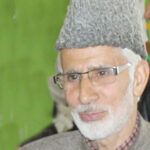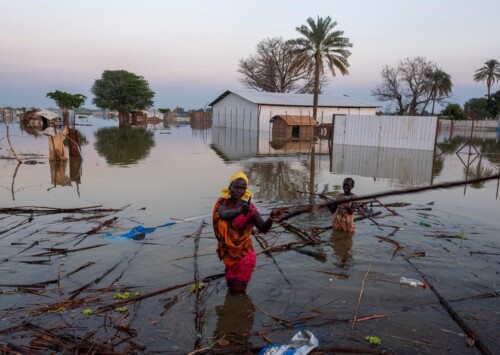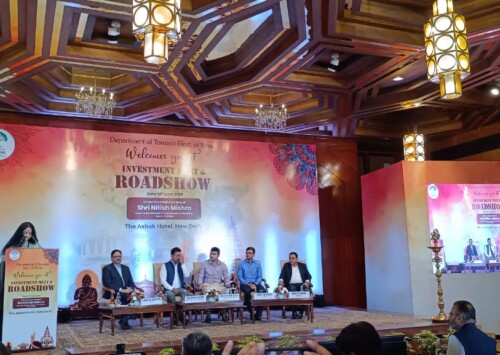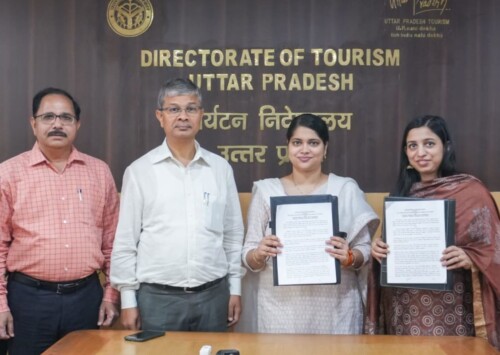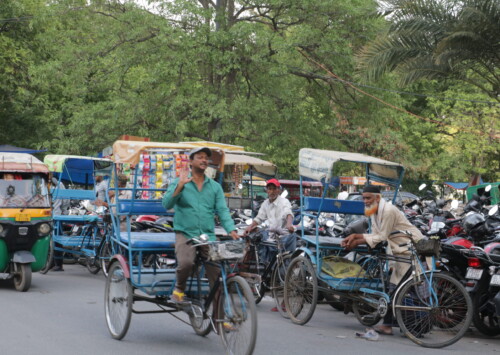Surge in Russian poplar pollen allergies in Kashmir Valley
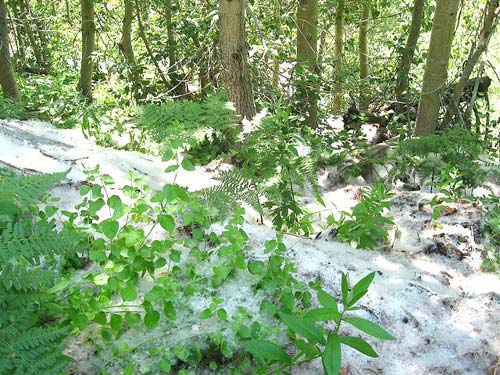
Kashmir appears to be undergoing one of the worst outbreaks of allergies, caused by cotton-type pollen produced by Russian poplars
With the arrival of spring in Kashmir valley, in the famed scenic beauty of the northern territory of Jammu and Kashmir, there is also a surge in seasonal allergies induced by pollen, creating challenges for public health and well-being.
However, this year, Kashmir appears to be undergoing one of the worst outbreaks of allergies, caused by cotton-type pollen produced by Russian poplars.
Hospitals are witnessing a surge in allergy cases, presenting symptoms such as wheezing, sneezing, nasal congestion, watery and red eyes, chest infections and running noses. Many patients have reported skin irritation, fever, cold symptoms and cheek irritation, with some cases leading to more severe respiratory diseases.
Residents express their frustration and concern over the impact of these allergies on their daily lives and overall well-being.
“Every year, I end up getting hospitalised for several days in May due to pollen allergies. The pollen makes it impossible to go outside, severely affecting our daily lives,” Basid Nabi, a resident of Baramulla, tells Media India Group.
“We can’t enjoy the beauty of Kashmir in spring because of the constant threat of allergies,” he adds.
The seasonal surge in pollen-induced allergies is taking a toll on residents, including asthma patients. Despite the breathtaking beauty of the region, the relentless exposure to pollen has turned this time of year into a challenging and stressful ordeal for many.
“As an asthma patient, this pollen has made my life incredibly difficult. I am a working woman, and I have to go to the office every day. The constant exposure to pollen has worsened my condition, making it hard to breathe and focus on my work. I cannot just sit inside all day, but stepping outside feels like a risk to my health. It is heart breaking to see my productivity and well-being decline due to something as unavoidable as pollen. The allergies have turned what should be a beautiful season in Kashmir into a challenging and stressful time,” Rumaisa Sultan a resident of Srinagar tells Media India Group.
This pollen problem has engulfed many areas where the Russian poplars have been planted. The asthma patients and school-going children are the worst sufferers by it.
Former Director of Sher-i-Kashmir Institute of Medical Sciences, Parvaiz Koul emphasises the risk of developing conjunctivitis and exacerbating asthma cases due to pollen exposure.
“I have seen how pollen can exacerbate allergies, causing conjunctivitis and worsening asthma cases. It is crucial for residents to prioritise wearing masks to minimise exposure and safeguard their health, pollen have turned into one of the major health hazards in Kashmir,” Koul tells Media India Group.
“We typically observe a surge in number of patients with allergies during this season of the year, and this year is no exception. People are indeed complaining of allergies, with symptoms ranging from sneezing and itchy eyes to more severe respiratory issues. It is concerning to see the impact of pollen allergies on the community’s health, and it reinforces the importance of taking preventive measures and seeking medical attention when necessary,” Dr Amjad Ali allergist at GMC Baramulla, tells Media India Group.
Dr Naveed Nazir Shah, a top pulmonologist and Head of Department of Chest Medicine, at Chest Disease Hospital in Srinagar, says that the pollen season is an allergic season and the CD hospital has been receiving pollen allergy cases causing exacerbations of asthma over the past one month.
“Poplar cotton is not the actual pollen, it is the seed of poplar trees. When it spreads or circulates in the atmosphere there is pollen from different trees associated which are causing symptoms and are more allergic,” Dr Shah tells Media India Group.
Every year people in the valley are dismayed in the month of May due to pollen and allergies and Russian poplar is blamed the most and held as the first culprit.
“The Russian poplars were originally brought from the United States and introduced to Kashmir in 1982 under a Social Forestry Scheme. Its appeal lies in its rapid maturation, taking less than 15 years compared to the native Kashmiri poplar’s 40 years. This makes it highly profitable in the timber trade. Currently, there are approximately 20 million Russian poplars in the Valley, and their population continues to expand each year,” Zareef Ahmad Zareef, a historian and poet, in Srinagar, tells Media India Group.
In June 2015, the J&K High Court said that pollen seeds from the poplar species adversely affect the health of the general public, particularly elderly individuals and children. The court highlighted that these pollen seeds have led to chest diseases in the Kashmir valley. As a result, the court ordered the eradication of non-native poplar trees from Kashmir.
However, it has been nine years since the High Court order banning the cultivation of these poplars, but far from any reduction in their population, the trees are only growing in number.
Despite efforts to mitigate the issue, the persistent growth of these trees underscores the ongoing challenge of balancing environmental preservation with public health in the region.



